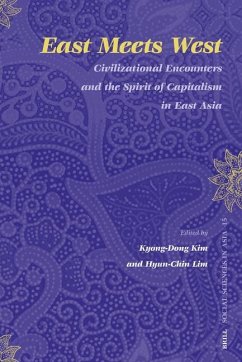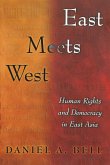Over the past few decades, East Asia developments in terms of production, population and trade have shown remarkable dynamics. Ensuing changes in these regions of non-Western civilization are commonly interpreted in terms of a successful adaptation of modernity. However, experiences such as the regional crisis in 1997 and the tragic incident of September 2001 more than ever ask for more intensive civilizational dialogues, and urge us to carefully consider the implications of capitalist development in the East Asian context(s). This book deals with the issues of Asian values, civilizational encounters between East and West, and the development of capitalism "and" its culture in East Asian countries. Its focus on inter-civilizational exchanges and the intricate interplays between civilizational and capitalist dynamics helps us to better understand our human story and history.
Bitte wählen Sie Ihr Anliegen aus.
Rechnungen
Retourenschein anfordern
Bestellstatus
Storno




